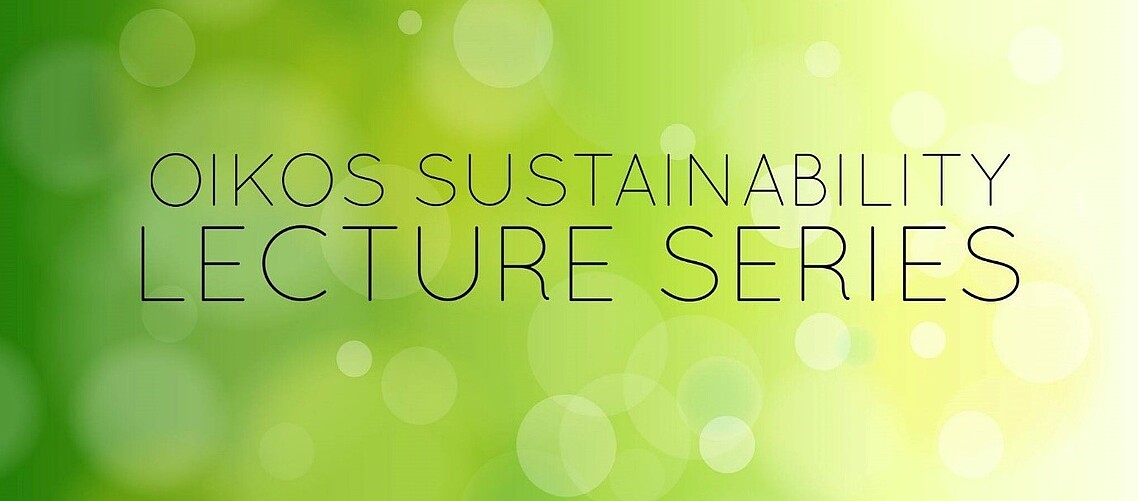Richard ter Steege, who played a key role in Interface’s transformation from a conventional business model to a sustainable one, spoke at the third edition of the oikos Sustainability Lecture Series on Tuesday March 15th. Ter Steege shed light on the innovative solutions that Interface has implemented, the challenges they faced on their mission for sustainability and why it is profitable for a company to make this kind of a shift.
The Interface Story
In 1994 the founder of Interface, Ray Anderson, decided to change the course of his business and make it 100% sustainable. This was not an easy process, as the main raw material of the carpets was oil and in 1994 sustainability was even less common than it is today. However, you could say that Interface has succeeded as they have considerably decreased their water and energy usage and have created a number of innovative concepts to decrease waste and foster sustainability.
How has Interface achieved this?
Step by step, paying attention to the whole value chain and trying to adapt a circular economy. To avoid using oil, Interface has been trying to find alternative raw materials for its products and has also succeeded in this. One of the best examples is their ‘Net Effect’ project, a result of years of R&D and experimenting. When large fishing boats have used their nets to the fullest extent, they throw them overboard. These nets then float for years, accumulating all sorts of marine animals, destroying the ocean’s natural resources and compromising the locals’ main source of income, namely fishing. Interface discovered that the fishing nets could be used as materials in the production of their carpets and set up a business where the locals collect the nets and sell them to Interface. It’s a win-win situation for everyone: for the locals, for the Interface business and for the environment. Check out this video for more information about the project.
Why should businesses invest in sustainability?
Ter Steege had a lot to say about the benefits of sustainability and why it is profitable for companies. First of all, reducing waste is not only good for the environment, it also decreases costs through decreased costs for raw materials and waste disposal. Secondly, sustainability is the future. One of ter Steege’s examples was that twenty years ago not all companies paid attention to the quality of their products because it wasn’t valued as highly at the time. However, nowadays consumers do pay attention to quality and the firms that have not invested in this, suffer from decreased sales volumes. Ter Steege predicts the same will happen with sustainability, and companies that invest in it now will have an advantage in the future. Thus, investing in sustainability will not only benefit the environment but also the company.
Want to hear more about these kinds of topics?
The lecture was organized by oikos Rotterdam, a student association with a mission of integrating sustainability into business and education and inspiring the leaders of tomorrow. The next lecture will be at the RSM Sustainability Forum on 15 April where the topic will be Integrated Reporting: How to measure the impact of social and environmental factors and integrate them into the accounting system. oikos Rotterdam is recruiting for board members for next year, so if you want to foster sustainable business, organize inspiring events or be inspired by the oikos atmosphere, send your CV and motivation letter to president@oikos-rotterdam.org before 1 May. For more information about the available positions, check the oikos Rotterdam Facebook page and website.
